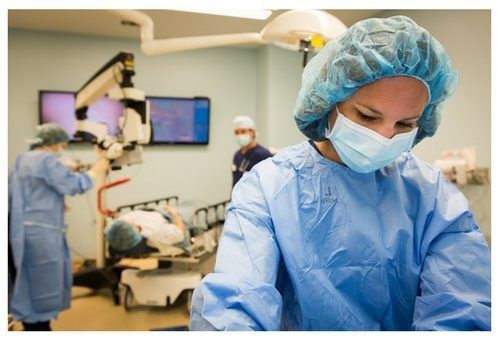“But It’s My Eye” — How Doctors Prevent Eye Surgery Mishaps
Your eyes are two of the most important organs in your body, so when surgery is necessary, we understand feeling a little nervous when scheduling your operation. Eye surgery is a delicate combination of medicine and art, but it’s a surgical practice’s implementation of standard procedures that prevent the majority of eye surgery mishaps.
A good eye surgeon has a steady hand, incredible hand-eye coordination, and a confidence in his ability to correct your eye problem. A great eye surgeon follows surgical eye procedures to the letter, regardless of how many times he’s performed that specific surgery.
A few examples of standard surgical procedures your eye surgeon will follow include:
Verifying the Patient
 Before you undergo surgery, you’ll be asked to verify your name, date of birth, and which eye your surgeon will be operating on. Most likely, you’ll be asked to verify this information multiple times with different members of the surgical team.
Before you undergo surgery, you’ll be asked to verify your name, date of birth, and which eye your surgeon will be operating on. Most likely, you’ll be asked to verify this information multiple times with different members of the surgical team.
While we try not to be redundant, repetitive confirmation has been proven to reduce wrong-patient errors in high-volume, busy surgical centers. Rest assured, we know who you are and we know exactly which eye we’re operating on, but following these guidelines helps eliminate any chance of patient mix-up.
Verifying the Eye
After verifying your identity and confirming the correct eye again, your eye will be dilated with preoperative drops. While the increase in pupil size will make the eye to be operated on obvious to the surgical team, your surgeon may also write his initials in surgical marker next to the appropriate eye.
 Verifying the Lens
Verifying the Lens
If your eye surgery requires lens implantation, your lens will be checked and double-checked against your treatment sheet and intraocular lens (IOL) power calculations. As the lens is taken out of its implantation box, the surgical nurse will verbally confirm the power of the intended lens with the surgeon again before it’s implanted.
“Pause for the Cause”
Right before an incision is made, the surgical team will take a time-out to confirm that everything has been done to avoid possible preoperative mishaps. More than likely, this will mean running through a checklist and verbally confirming the patient’s name, date of birth, type of surgery, which eye, and IOL calculations.
 Every surgical practice operates under a different set of standard procedures, so addressing your concerns with your surgeon before the big day is the best way to alleviate them.
Every surgical practice operates under a different set of standard procedures, so addressing your concerns with your surgeon before the big day is the best way to alleviate them.
Remember, the most important thing for you to do prior to surgery is to follow your surgeon’s preoperative instructions and try to relax. You’re in good hands.
As a leader in ophthalmology in the state of Tennessee, we strive to help our patients achieve their visual goals by making every surgery as simple, straightforward, and pleasant as possible. If you have questions about your upcoming surgery or if you need a diagnosis, please fill out this form to schedule an appointment or give us a call at 896-579-3920 today.






